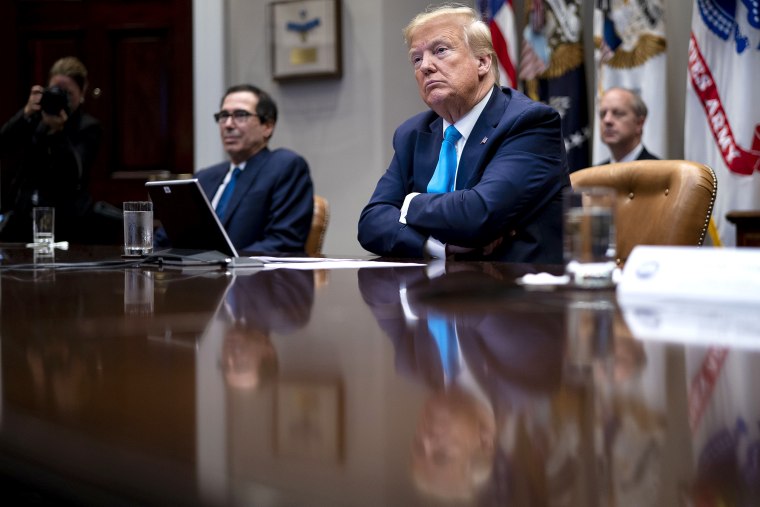The White House first issued guidelines in response to the coronavirus pandemic on March 16, the same morning Donald Trump told a group of governors that they shouldn't necessarily expect material support from his administration.
"Respirators, ventilators, all of the equipment -- try getting it yourselves," the president said, adding, "We will be backing you, but try getting it yourselves."
It was not, however, his final word on the subject. Two weeks later, Trump told reporters largely the opposite, insisting that states shouldn't be competing with one another for supplies. "No, I don't want them to compete because all they're going to do is drive up the price," the president said on March 31. "I don't want them to compete. They should be calling us." A few days later, the Republican switched back when asked about states bidding against one another -- and the federal government -- for materials. "They have to work that out," the president declared on April 2.
The inconsistencies notwithstanding, that last directive has become the prevailing one: Trump wants states to recognize the fact that, by and large, they're on their own. Many governors have gotten the message and acted accordingly, taking extraordinary steps, as the Washington Post put it, "to compete in an increasingly cutthroat global marketplace" for desperately needed supplies.
The article pointed to unnamed officials in one state who were so concerned about competition -- from other states and federal purchases -- that they've considered "dispatching local police or even the National Guard to greet two chartered FedEx planes scheduled to arrive in the next week with millions of masks from China." They didn't want the Post to identify the state, fearing that the Trump administration might try to take the shipment out from under them.
On Friday, the president boasted to reporters, "We're getting very few calls from governors or anybody else needing anything. They're in great shape." National Governors Association Chairman Gov. Larry Hogan (R) of Maryland conceded yesterday that Trump's boast is wrong.
It was against this backdrop that the Washington Post reported on "a collection of governors, former government officials, disease specialists and nonprofits," who are collectively trying to fill the void left by Donald Trump, who's choosing not to lead. The article added this striking paragraph:
Administration officials, speaking on the condition of anonymity to describe internal deliberations, say the White House has made a deliberate political calculation that it will better serve Trump's interest to put the onus on governors -- rather than the federal government -- to figure out how to move ahead.
It's as striking a sentence as you'll read about the politics of the pandemic: the president and his team aren't just abdicating their responsibilities; they're doing so consciously, confident that it will ultimately serve Trump's political interests.
It was nearly four years ago when Candidate Trump stood on a national stage in Cleveland and declared, "Nobody knows the system better than me, which is why I alone can fix it." Forty-five months later, the same man sits in the Oval Office, shrinking from the moment, making a "deliberate political calculation" that shifting the burdens of leadership to others will free of him the responsibilities of his own failures.
Postscript: On Twitter yesterday afternoon, Trump wrote, "Governors, get your states testing programs & apparatus perfected. Be ready, big things are happening. No excuses!" It seems as if the president doesn't make a distinction between leading and urging others to lead in his stead.

